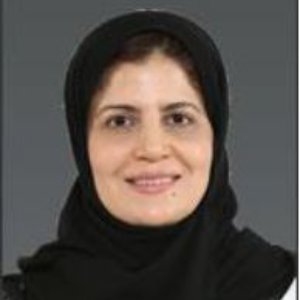Biography:
Dr. Fadia El Bitar is a prominent scientist specializing in genetics and neurodegenerative diseases, particularly Alzheimer's disease. She is currently based at the King Faisal Specialist Hospital and Research Center in Riyadh, Saudi Arabia. Her work focuses on identifying the genetic causes of Alzheimer's disease in Saudi patients and developing in vitro models of the disease by converting patient-derived fibroblasts into neurons. This innovative approach aims to facilitate the discovery of effective drugs to mitigate the toxic effects of amyloid peptides involved in Alzheimer's pathology. Dr. El Bitar holds a PhD in Cellular and Molecular Biology from the National Institute for Science and Health (INSERM) at the University of Auvergne, France, which she obtained in 1999. She also earned a Master's degree in Cellular and Molecular Biology from the University of Blaise-Pascal in 1995, and a Bachelor's degree in Biochemistry from the Lebanese American University in 1991. Her research has made significant contributions to the understanding of Alzheimer's disease, particularly through her exploration of neuroprotective agents that could potentially offer new therapeutic avenues. For instance, her studies on synthetic analogues of curcumin have shown promising results in protecting neuronal cells from amyloid-induced toxicity. Dr. El Bitar's work is supported by notable national and international collaborations and has been recognized through various publications and conference presentations. Her research has also benefited from substantial funding, including a notable grant from the King Abdulaziz City for Science and Technology, highlighting the importance and impact of her contributions to the field of neurogenetics and personalized medicine.





Title : Investigating unique and recurrent copy number variations in inflammation-related genes in alzheimer's disease and related disorders among Saudi patients